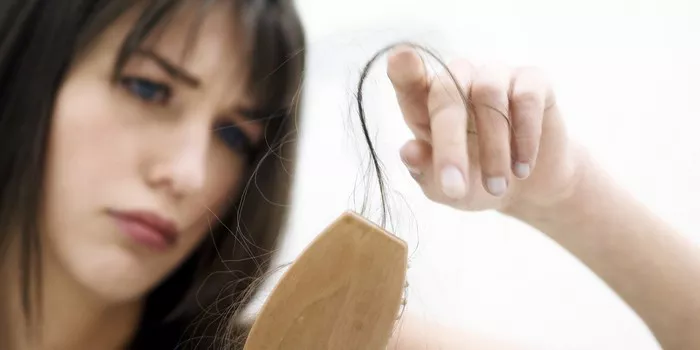Hair loss can be a distressing concern for many individuals, impacting both appearance and self-confidence. While various factors contribute to hair loss, including genetics, hormonal imbalances, and stress, ensuring adequate intake of essential vitamins and nutrients can play a crucial role in promoting healthy hair growth and minimizing hair loss. In this comprehensive guide, we’ll explore the best vitamins to take to stop hair loss, providing you with valuable insights into how each nutrient supports hair health and growth.
Understanding Hair Loss:
Types and Causes: Hair loss can manifest in different forms, including male and female pattern baldness, alopecia areata, and telogen effluvium. Understanding the underlying cause of hair loss is essential for selecting the most effective treatment approach.
Contributing Factors: Factors such as genetics, hormonal imbalances, nutritional deficiencies, stress, and certain medical conditions can contribute to hair loss. Addressing these underlying factors is key to effectively managing hair loss.
Essential Vitamins for Hair Health:
Biotin (Vitamin B7):
Role: Biotin is essential for the production of keratin, a protein that forms the structure of hair strands. It also supports the metabolism of fatty acids, which are crucial for healthy hair growth.
Food Sources: Eggs, nuts, seeds, whole grains, and leafy greens.
Supplementation: Biotin supplements are available and may be beneficial for individuals with biotin deficiency or experiencing hair thinning.
Vitamin D:
Role: Vitamin D plays a role in hair follicle cycling and proliferation, making it essential for maintaining healthy hair growth.
Food Sources: Fatty fish (such as salmon and mackerel), fortified dairy products, egg yolks, and sunlight exposure.
Supplementation: Vitamin D supplements may be recommended for individuals with low vitamin D levels, especially those living in regions with limited sunlight exposure.
Vitamin E:
Role: Vitamin E is an antioxidant that helps protect hair follicles from oxidative stress and damage. It also supports scalp health by improving blood circulation.
Food Sources: Nuts, seeds, avocados, spinach, and sunflower oil.
Supplementation: Vitamin E supplements may be beneficial for individuals with vitamin E deficiency or seeking to improve hair health.
Vitamin A:
Role: Vitamin A is involved in the production of sebum, a natural oil that moisturizes the scalp and helps keep hair strands healthy.
Food Sources: Sweet potatoes, carrots, spinach, kale, and liver.
Supplementation: Excessive intake of vitamin A supplements can be harmful and may contribute to hair loss, so it’s essential to obtain vitamin A from dietary sources whenever possible.
Vitamin C:
Role: Vitamin C is essential for collagen synthesis, which is crucial for maintaining the structural integrity of hair follicles and promoting healthy hair growth.
Food Sources: Citrus fruits, strawberries, bell peppers, kiwi, and broccoli.
Supplementation: While vitamin C supplements are available, obtaining vitamin C from whole foods is generally recommended due to its higher bioavailability and additional health benefits.
Iron:
Role: Iron is necessary for the production of hemoglobin, which carries oxygen to hair follicles. Iron deficiency anemia is a common cause of hair loss, especially in women.
Food Sources: Red meat, poultry, fish, lentils, beans, and fortified cereals.
Supplementation: Iron supplements may be necessary for individuals with iron deficiency anemia or those experiencing hair loss due to iron deficiency.
Conclusion:
Ensuring adequate intake of essential vitamins and nutrients is crucial for promoting healthy hair growth and minimizing hair loss. Biotin, vitamin D, vitamin E, vitamin A, vitamin C, and iron are among the key vitamins and minerals that support hair health and can help prevent hair loss when consumed as part of a balanced diet or through supplementation when necessary. However, it’s essential to consult with a healthcare professional or dermatologist before starting any new supplement regimen, especially if you have underlying health conditions or are taking medications. By addressing nutritional deficiencies and supporting overall health, you can optimize your chances of maintaining a full, healthy head of hair.
In conclusion, incorporating vitamins and minerals that support hair health into your diet can be an effective strategy for combating hair loss and promoting healthy hair growth.
How Long Does Menopause Hair Loss Last

